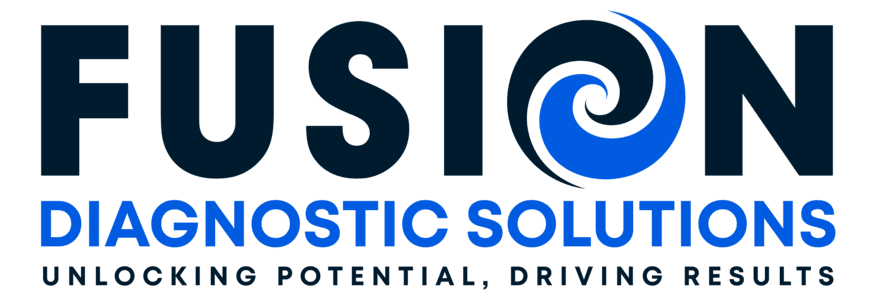Enhancing your business value is crucial in today’s competitive market. It determines your company’s worth and influences its market position.
Understanding business value involves more than just financial metrics. It encompasses your value proposition, market value, and enterprise value.
A strong value proposition can set you apart from competitors. It highlights what makes your business unique and valuable.
Regular business assessments help identify areas for improvement. They ensure your strategies align with your value creation goals.
This guide will explore strategies to boost your business worth. From financial metrics to customer engagement, discover actionable steps to enhance your company’s value.
Understanding Business Value: Key Concepts and Importance
Business value is a vital concept for any company. It reflects your company’s worth and potential in the market. Business value is not just a financial metric; it involves various elements.
Several key components define business value:
- Financial Value: Assesses profits, revenue, and assets.
- Market Value: Reflects your company’s standing and reputation.
- Value Proposition: Highlights what makes your business unique.
Understanding these components helps in crafting effective strategies. A holistic view ensures that all aspects contribute to overall value.
Importance lies in how business value shapes decisions. It influences investor confidence and stakeholder relationships. Companies focusing on value creation often outperform competitors.
Investing time in understanding business value is crucial. It empowers leaders to make informed decisions and achieve long-term growth. Recognize its importance to stay ahead and maximize potential.
Assessing Your Current Business Value
To enhance your business value, begin with a thorough assessment. Understanding your current status sets the foundation for improvement. Evaluate various aspects of your business through a comprehensive analysis.
A business assessment involves several key steps:
- Financial Analysis: Review profits, costs, and revenue streams.
- Market Position: Assess how your brand competes in the industry.
- Operational Efficiency: Identify strengths and weaknesses in processes.
These assessments reveal areas needing enhancement. Regular evaluations track progress and guide strategic planning. Comprehensive assessments shine a light on untapped opportunities.
Utilizing external and internal resources is beneficial. Consultants or a dedicated team can provide valuable insights. Their objective view helps identify blind spots and set realistic goals.
Act on the assessment findings to elevate your business value. Taking informed actions is key to ensuring long-term success. Adjust your strategies based on the outcomes for optimal growth.
Strengthening Your Value Proposition
A strong value proposition is essential for boosting business value. It defines what makes your offerings unique and attractive to customers. To create a compelling value proposition, focus on customer needs and pains.
Consider the following strategies to enhance your value proposition:
- Understand Customer Needs: Conduct surveys to gather feedback.
- Highlight Unique Benefits: Clearly differentiate your offerings.
- Communicate Effectively: Ensure your message is clear and consistent.
Tailor your value proposition to meet specific market segments. Customize your approach to address different customer preferences. This ensures that your offerings resonate with your target audience.
Regularly review and refine your value proposition. The market evolves, and so should your strategies. Continuous adaptation keeps your value proposition relevant and competitive. Aligning with customer expectations leads to greater business worth.
Financial Value: Metrics and Methods to Measure and Improve
Understanding financial value is crucial for business growth. It’s essential to know the right metrics to track. Key financial metrics provide insights into your company’s health and potential.
Common financial metrics include:
- Revenue Growth Rate: Shows how quickly your business is growing.
- Profit Margins: Indicates financial efficiency.
- Return on Investment (ROI): Assesses profitability of investments.
Improving financial value requires effective strategies. Start by optimizing cost management. Identify areas where expenses can be reduced without harming operations. This directly boosts profit margins.
Regular financial analysis aids in spotting trends and making informed decisions. Use financial assessments as tools to identify weaknesses and opportunities. Informed choices enhance your company’s financial health.
Invest in financial planning to support long-term growth. Strategic planning aligns resources with business goals. This proactive approach protects and builds financial value, contributing to overall company value.
Enhancing Market Value Through Branding and Customer Engagement
Market value hinges significantly on how your brand is perceived. A strong brand identity attracts customers and creates loyalty. Invest in developing a unique brand that resonates with your target audience.
Customer engagement is a powerful driver for market value. Interactions should foster trust and satisfaction. Utilize various platforms to engage consistently with your audience.
Effective strategies for market value enhancement include:
- Consistent Branding: Ensure your brand message is uniform across all channels.
- Personalized Communication: Tailor messages to fit individual customer needs.
- Engaging Content: Use content marketing to build community and interest.
Building a loyal customer base enhances market value. Satisfied customers become brand advocates, driving word-of-mouth promotion. This organic growth is vital for sustained market presence and can significantly boost business worth over time.
Value Creation Through Innovation and Operational Excellence
Value creation is crucial to enhancing business worth. Innovation acts as a catalyst for business growth. By constantly seeking new ideas and solutions, companies can remain competitive.
Operational excellence focuses on optimizing processes. Streamlining operations reduces costs and improves efficiency. This approach enhances both quality and customer satisfaction.
Key strategies for value creation through innovation and operational excellence include:
- Process Improvement: Continually refine workflows to eliminate waste.
- Collaborative Innovation: Encourage cross-team collaborations for fresh perspectives.
- Benchmarking: Use industry standards to measure performance.
Innovation should be part of your company culture. Encourage employees to propose new solutions. This not only boosts motivation but also uncovers valuable insights.
Ultimately, focusing on innovation and operational excellence leads to increased productivity. When executed well, these strategies significantly heighten enterprise value and establish a resilient market position.
Leveraging Technology and Digital Transformation
Technology is a key driver of business value. Digital tools can revolutionize operations and enhance customer experience. Companies embracing digital transformation often see notable increases in efficiency.
Integrating technology involves more than just new tools. It requires a strategic approach to implementation. Businesses must ensure technology aligns with their goals. This alignment amplifies the benefits of digital transformation.
Here are ways to leverage technology effectively:
- Automate Processes: Use software to reduce manual tasks.
- Data Analytics: Harness data for informed decision-making.
- Customer Relationship Management: Improve interactions through technology.
Adapting to technological advancements can greatly impact enterprise value. It’s important to stay ahead in the tech landscape. This proactive stance ensures sustained growth and a competitive edge.
Building a Skilled Workforce and Strong Corporate Culture
A skilled workforce is central to increasing business value. Employees with diverse abilities drive innovation and efficiency. Investing in training programs can boost their skills significantly.
Strong corporate culture enhances employee morale and productivity. A positive work environment attracts top talent and reduces turnover. It’s vital to foster a sense of belonging and shared vision among employees.
Consider these strategies to build a skilled workforce and culture:
- Provide Ongoing Training: Upskill employees regularly.
- Encourage Collaboration: Promote teamwork and open communication.
- Recognize Achievements: Celebrate successes to motivate staff.
Focusing on workforce development and culture lays a foundation for long-term success. A committed team can enhance company value and contribute to sustainable growth.
Risk Management and Business Value Protection
Protecting business value requires effective risk management. Identify potential threats and assess their impact on your enterprise value. Regular evaluations help adapt to changing market conditions and safeguard your company’s interests.
Implementing robust risk management strategies ensures stability. Consider employing these measures to protect your business:
- Conduct Regular Audits: Identify vulnerabilities early.
- Diversify Investments: Spread risk across various assets.
- Develop Contingency Plans: Prepare for unforeseen events.
These strategies not only protect assets but also increase resilience. By anticipating potential risks and preparing solutions, you can maintain and even enhance your business worth over time.
Communicating and Demonstrating Business Value to Stakeholders
Effectively communicating your business value is crucial for stakeholder confidence. Transparency and clarity in communication build trust and support. Focus on expressing your value proposition and achievements clearly.
To ensure stakeholders recognize your company value, consider these approaches:
- Regular Updates: Keep stakeholders informed about progress and milestones.
- Use Data and Analytics: Provide evidence of growth and success.
- Host Interactive Sessions: Encourage feedback and address concerns directly.
These tactics help convey your enterprise value convincingly, fostering stronger relationships with stakeholders and improving business worth.
Continuous Improvement and Strategic Planning for Long-Term Value
Continuous improvement is key to sustaining business value over time. It involves regular assessment and optimization of processes to ensure efficiency. This ongoing effort helps your business stay competitive and responsive to market changes.
Strategic planning forms the foundation for enduring company value. It aligns objectives with long-term goals, guiding your organization towards value creation. Here are critical elements to consider:
- Set Clear Objectives: Define precise and measurable goals.
- Monitor Performance: Regularly evaluate progress against targets.
- Adapt Strategies: Adjust plans based on feedback and market trends.
By focusing on these components, you can enhance your market value and ensure sustained business growth.
Conclusion: Taking Action to Maximize Your Business Worth
Maximizing business value requires deliberate effort and smart strategies. Begin by assessing your current position and crafting a solid value proposition. Align your operations to support value creation and adapt to market demands.
Take advantage of technology, foster a skilled workforce, and maintain robust risk management practices. Effective communication with stakeholders is crucial. Commitment to continuous improvement will propel your business towards long-term success. Implement these strategies diligently to elevate your business worth.

